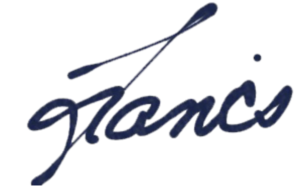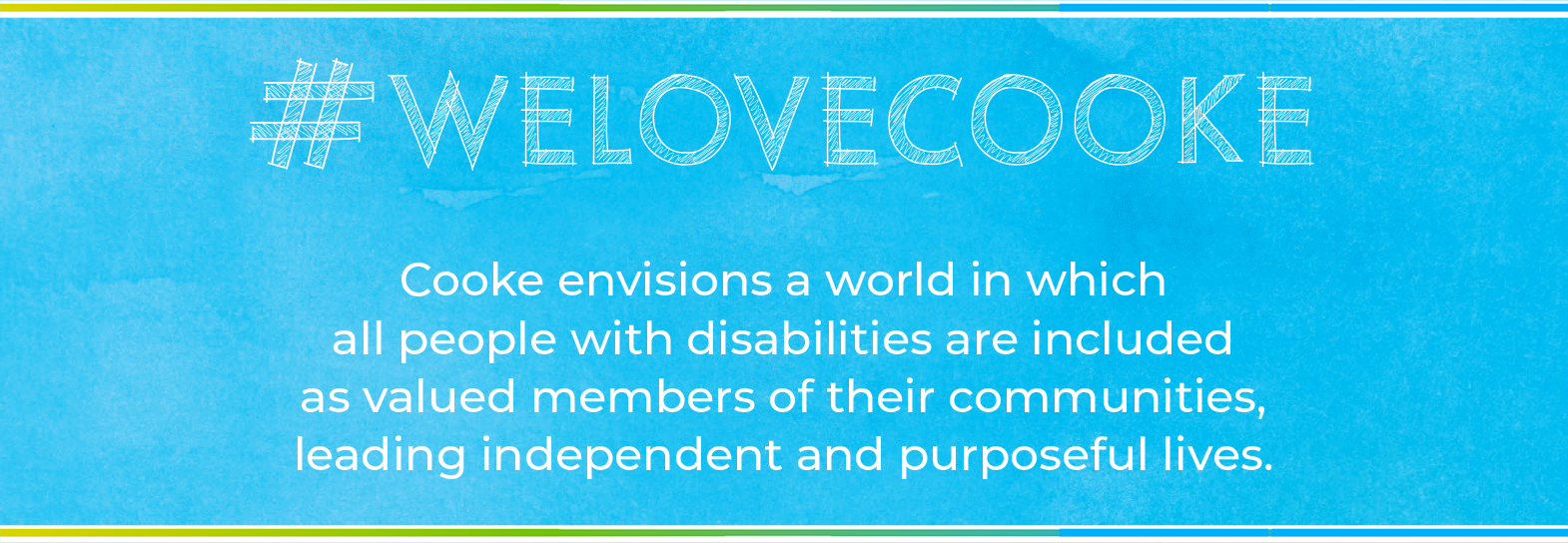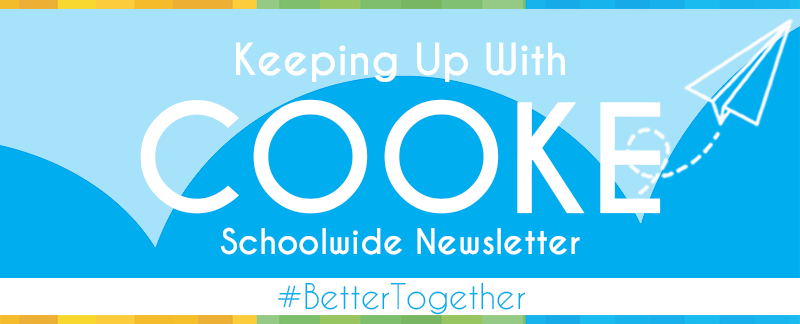

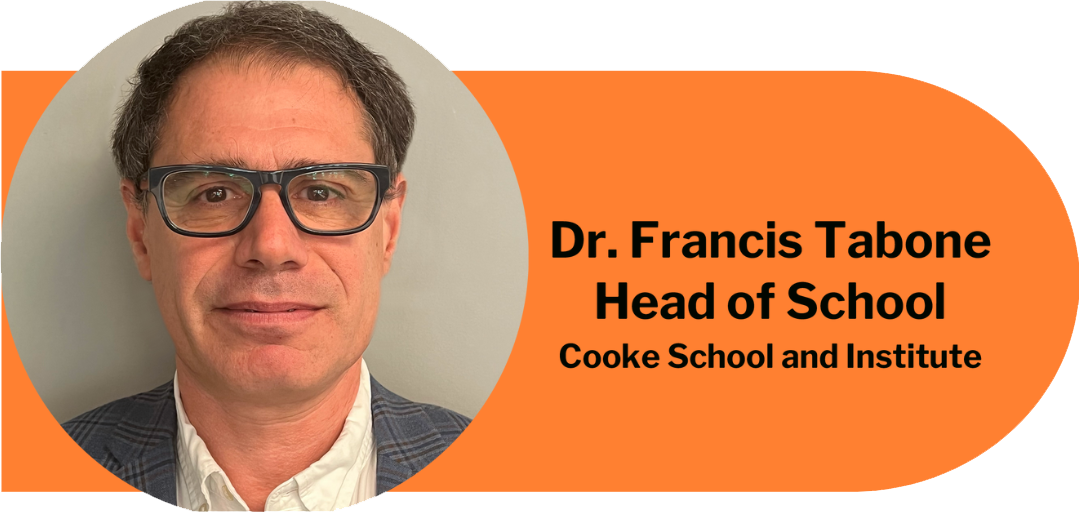
Magic in the Mix: Cooke Family Conferences
Progress reports and family conferences are an important tool for helping parents understand their child’s academic performance and social/emotional development. These communications help families work with teachers to address any challenges or concerns. By providing clear and concise information, progress reports and parent conferences are designed to help parents make informed decisions about their child’s education and ensure that their child has the support and resources they need to succeed.
Progress reports provide an overview of a child’s day-to-day activities. It is challenging to capture a child’s vast experiences and variations in performance, so our staff collaborates to refine and identify the most efficient and effective reporting structure. Sometimes there are debates about whether goals are too narrow or broad. We aim to provide reports that are informative and useful.
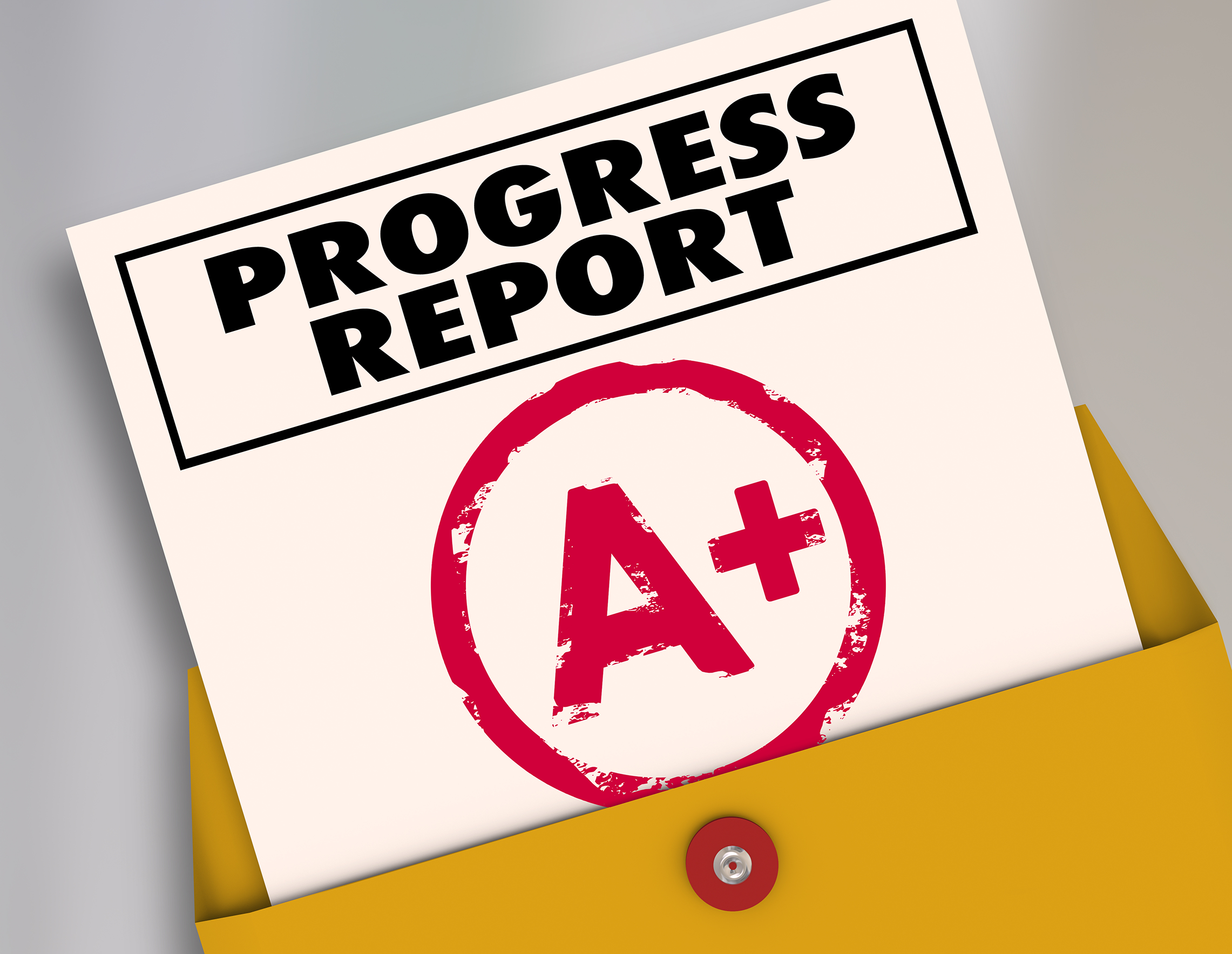
Progress Reports
Generally, progress reports provide:
- Clear and concise information
Given the nature of our students’ learning differences, these reports can be very complex. While grade levels are often used for IEP meetings, the hope is that the report gives parents more nuanced information by including specific areas of growth and items the student needs to work on. - Comparison to expectations
They help families understand how their child’s performance compares to expectations. Again, this can be a complex topic, as expectations are different for all students. Over time, expectations become more adaptive (e.g., using a calculator, becomes more important than knowing the multiplication tables). - Opportunities for discussion
They’re a starting point for conversations between parents and teachers. They can be used by parents as a basis for discussing their child’s strengths, and weaknesses, as well as any challenges or concerns that their teacher has identified. - Ongoing assessment
Progress reports are issued twice per year, providing ongoing assessment of a student’s progress over time. This allows parents to track their child’s progress and identify areas for improvement. - Planning for the future
Progress reports help parents and teachers develop a plan for addressing any challenges or concerns that the student is facing. By working together, parents and teachers can identify strategies for helping the student improve and set goals for future academic success. Student expectations center around being independent.

Family Conferences
Parents should expect:
- A review of the child’s academic progress
Teachers will review the student’s academic progress, and parents will see a sample of their work and portfolio (SeeSaw is always available to peek at your child’s work). Teachers will also discuss the student’s learning style and the use of effective strategies. - Feedback on the child’s behavior and social interactions
Teachers will discuss any concerns they have about the student’s behavior or social skills, and may suggest strategies for addressing these issues. - Opportunities to ask questions and provide feedback
Parents may want to ask about specific assignments, assessments, or classroom activities, or may provide feedback on their child’s progress or any concerns they have. - Collaborative problem-solving
Family conferences should be a collaborative effort between parents and teachers to address any challenges the student may be facing. Parents should expect to work with teachers to develop strategies and solutions for addressing academic, behavioral, or social challenges. - Action plans
At the end of the conference, parents should expect to receive an action plan outlining specific strategies and next steps for addressing any concerns or challenges that were discussed. This may include recommendations for further assessments, referrals to resources or support services, or suggestions for activities or strategies to try at home.
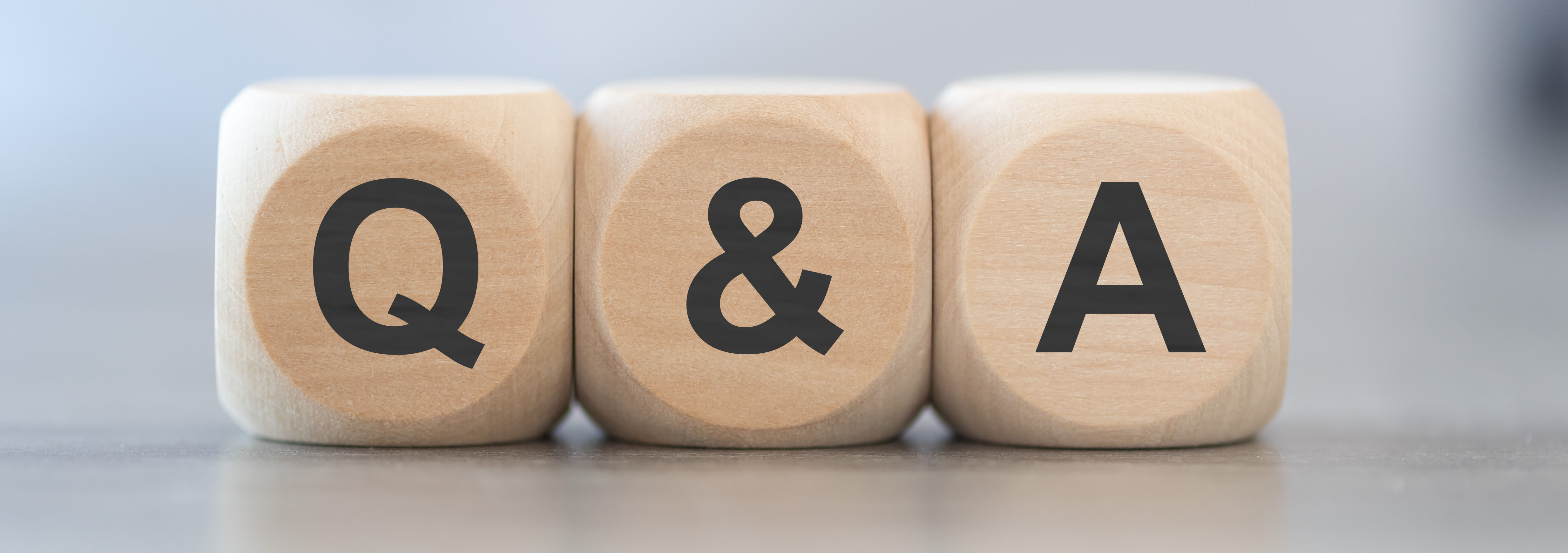
Sample Parent Questions
At conferences parents may want to ask the following during conferences:
Can I tell you about my child? Can I tell you about what is going on at home?
No one knows your child better than you do so any information you have will be helpful for staff.
How is my child doing socially? Emotionally?
It is important to get a sense of your child’s social experience in school. Often, students don’t or are unable to paint a picture of their experiences. It’s important to ask about your child’s emotional health at school. For example, is your child generally happy? Are there certain times of the day when your child seems stressed or agitated? Clinical services are a huge part of our school; the more information we have, the better.
What are my child’s strengths and weaknesses?
A child’s teacher sees them from a different perspective than their parents do. Parents should ask their child’s teacher what personal weaknesses their child needs to work on, and listen to the response with an open mind. Asking about their strengths helps parents to encourage their child to continue doing good work.
May I bring up a concern?
Teachers usually appreciate when parents bring an issue to their attention, as long as it’s done with respect. For example, if you’re concerned about the amount of time your child is spending reading, this is the time to discuss it with their teacher. Teachers and parents all have the same goal: to do what they can to ensure their children have a successful school year.
Can you fill me in on a particular situation?
When children have complaints about what’s going on at school, it is advisable that parents ask for clarification from the teacher. Oftentimes parents have only heard their child’s side of a story. Conversely, there may be things the child is not telling their parents, that the teacher will bring up.
What is the best way to communicate with you?
Teachers have a lot of students and parents trying to talk to them during any given school day; it is important to get an understanding of their communications preferences (email, phone, face-to-face, or SeeSaw.)
I hope that this information helps parents get the most out of conferences and progress reports. As always, if you have questions, we are ready to answer!
My best,
Dr. Francis Tabone, Cooke Head of School
Sharing Our Knowledge: Cooke Goes Global (again)!
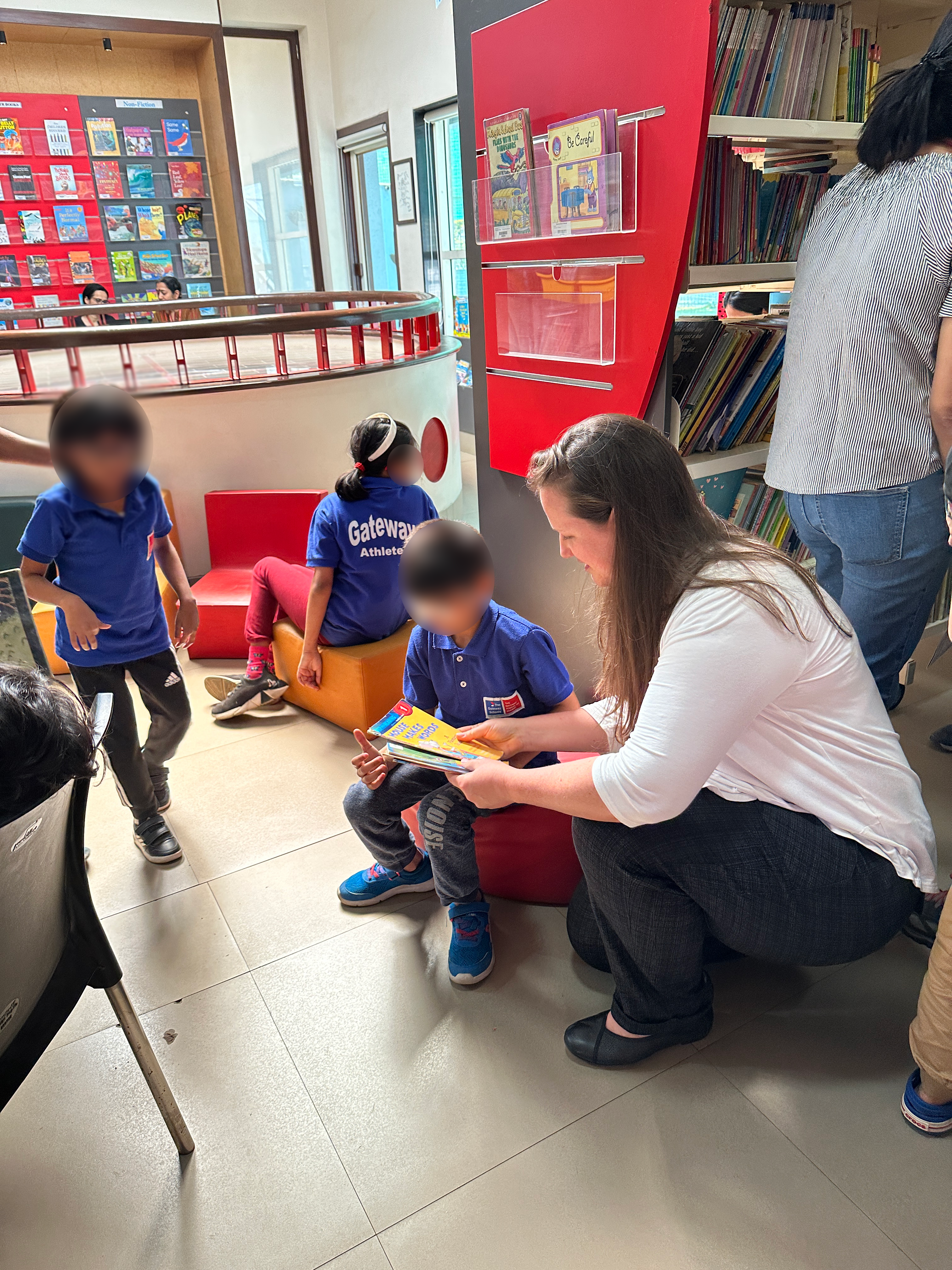
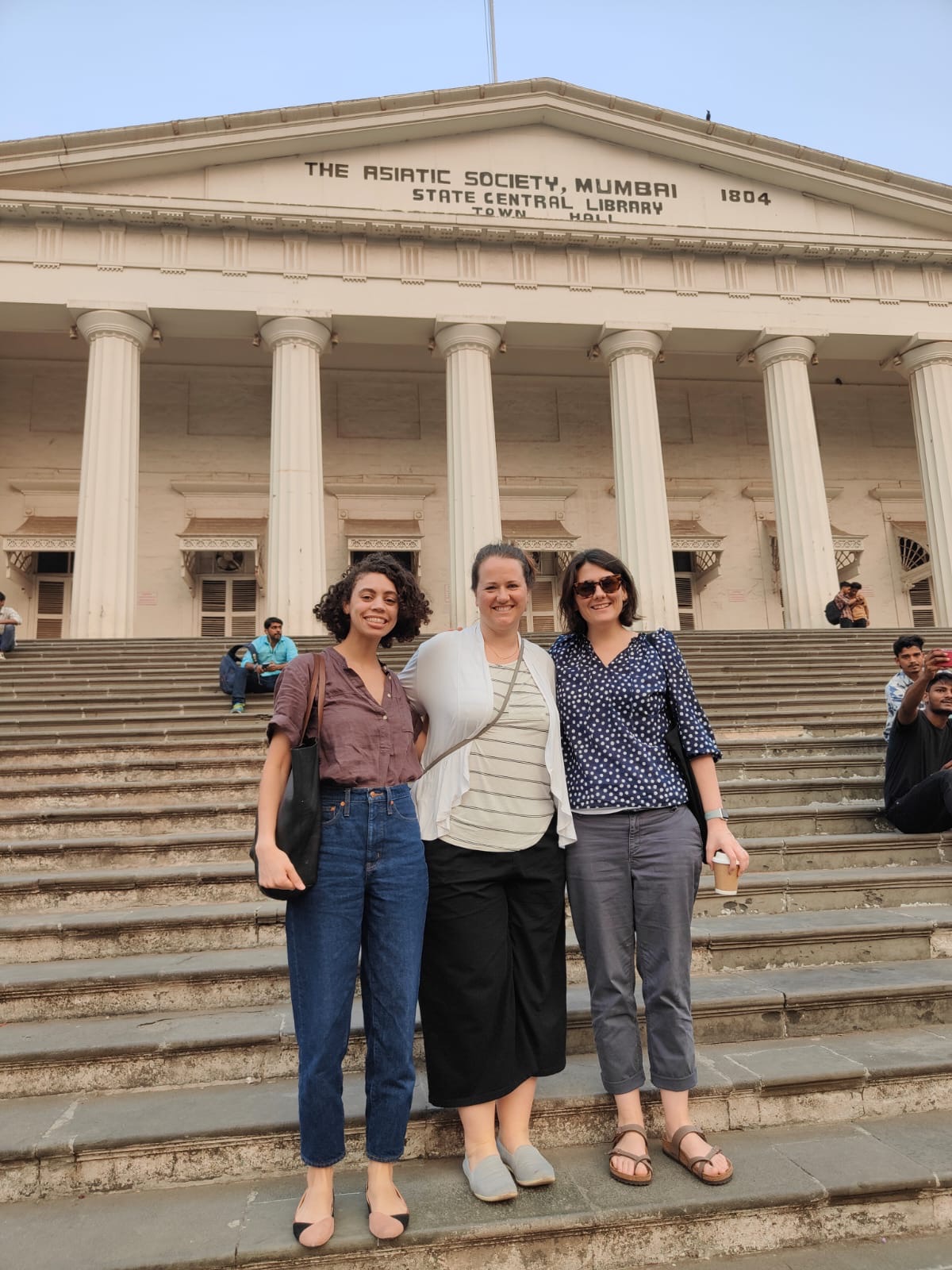
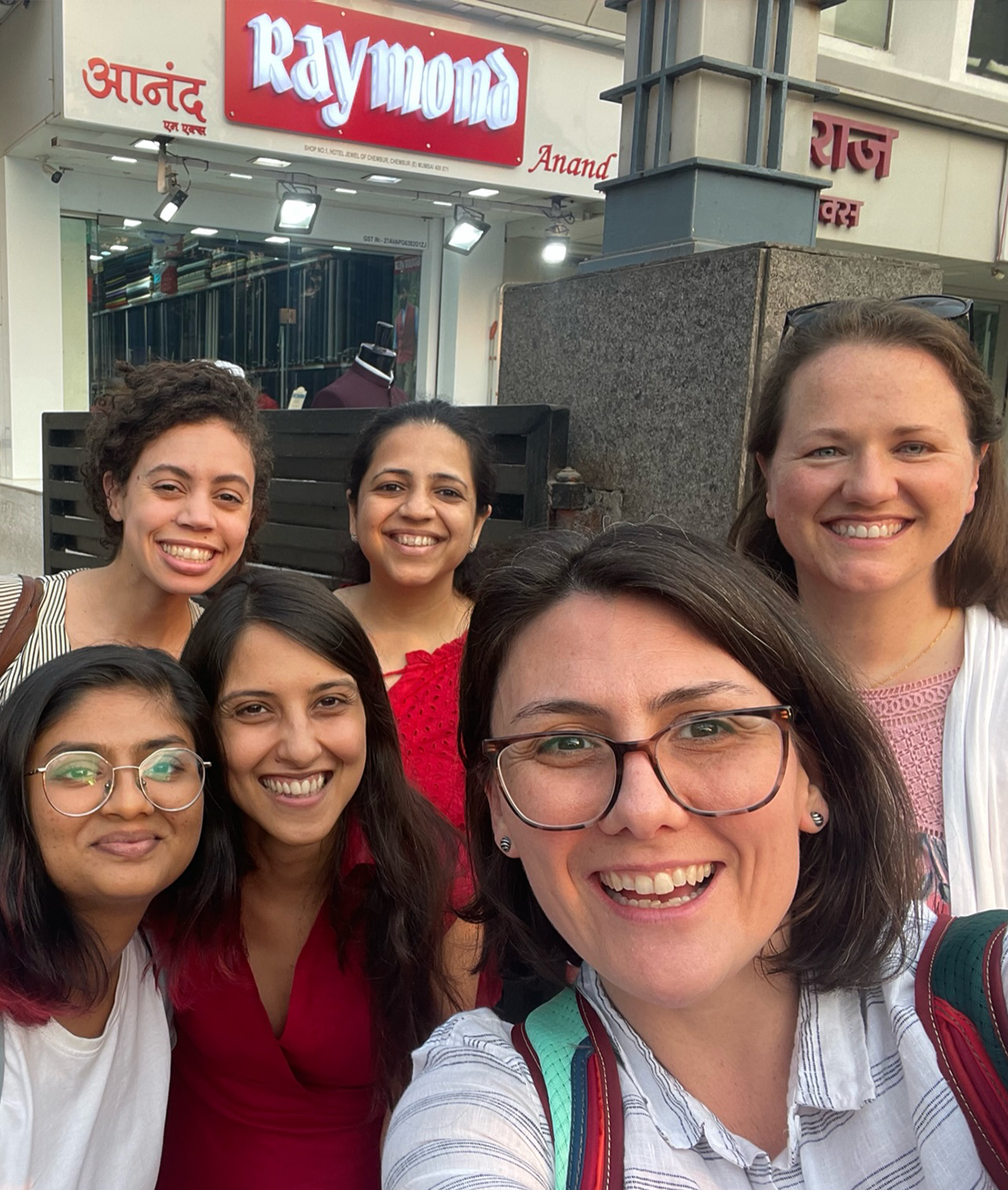
Yoga and Mindfulness
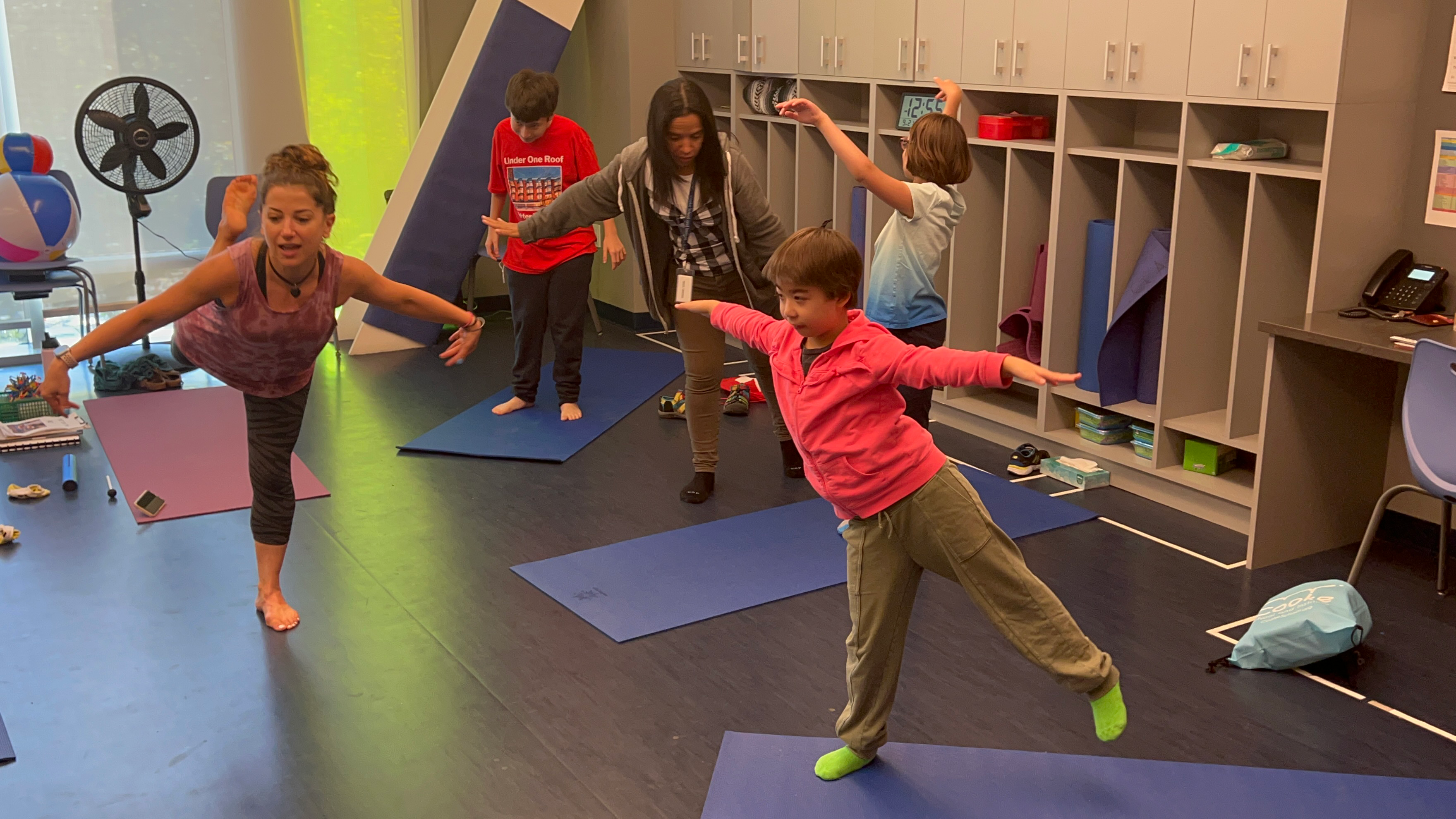
Yoga offers amazing benefits. It increases strength, flexibility, balance, mental and physical energy and encourages relaxation by activating the parasympathetic nervous system. Yoga also supports self-regulation and sensory processing.
In Cooke’s Yoga and Movement classes, students receive vestibular input through activities like jumping, swinging, being upside down, and spinning. Students use weight-bearing poses and “gluing their feet to one spot,” to address proprioceptive needs. Music is one of the tools used in yoga practice. It helps students to focus on their breathing and calm their bodies and minds.
Our approach to teaching yoga and movement incorporates fun routines, activities, and games using items such as beach balls, balloons, and scarves. Every class is different based on our students’ needs. To keep them engaged, teachers adjust the energy throughout the class to help increase our students’ ability to focus.
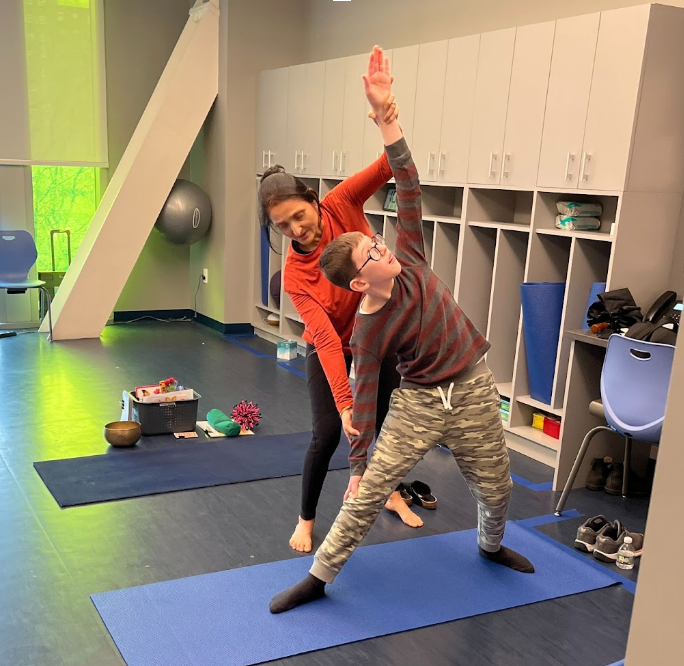
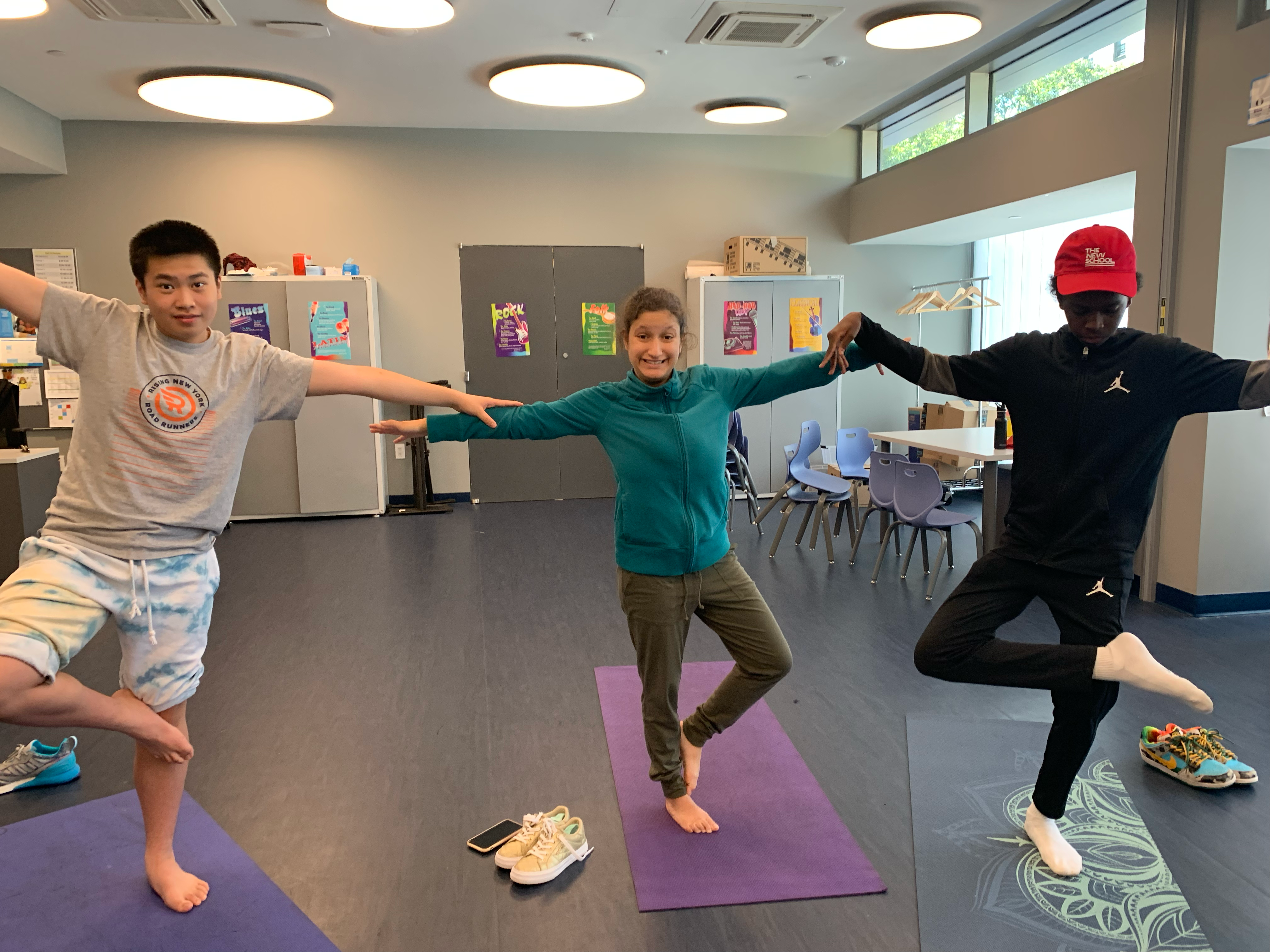
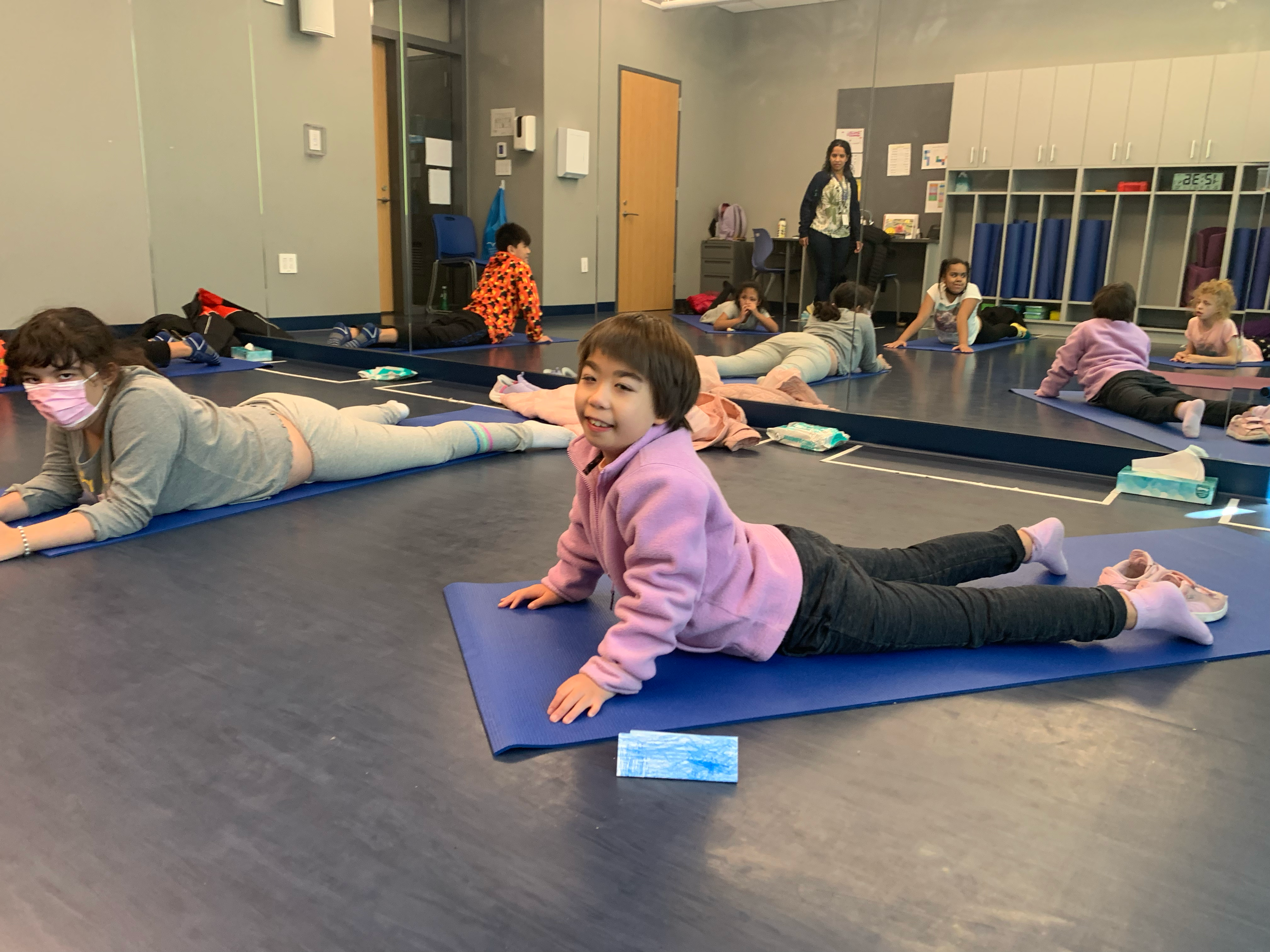
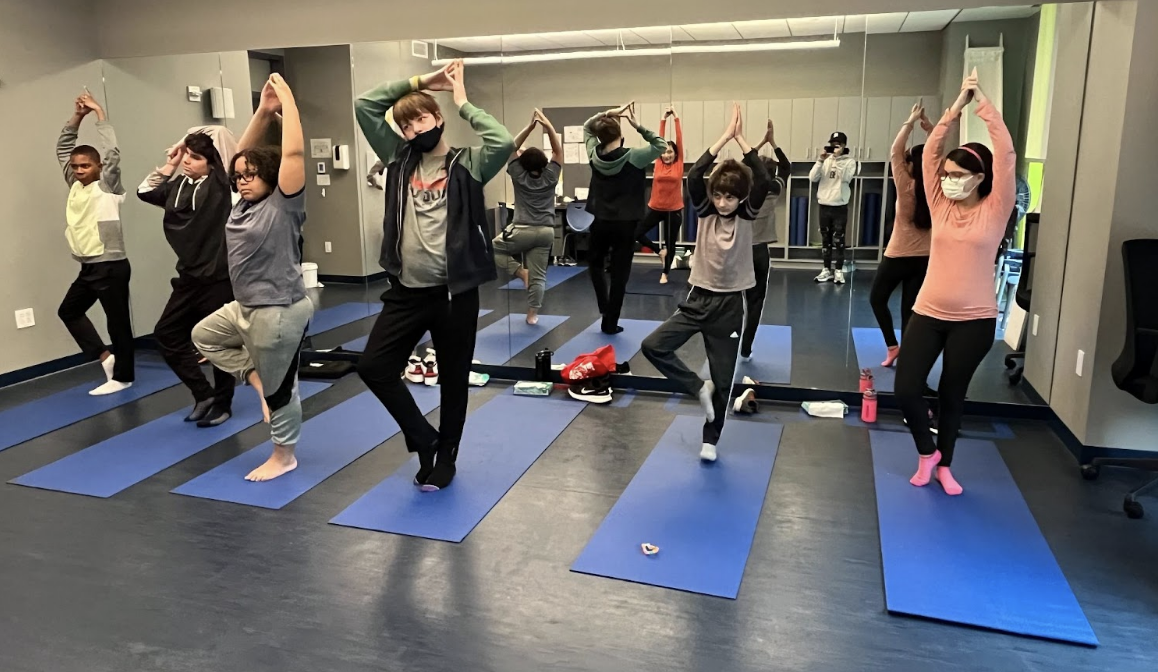
Yoga movements such as spinal extension, flexion, lateral flexion, spinal twist and inversion combined with breathing helps to improve flexibility, range of motion, balance, core strength and alignment. These actions simultaneously calm the mind and nervous system, boosting positive energy. Recently, students were introduced to practicing breath of fire and humming breath practices which help to prevent the common cold, respiratory discomfort, hormonal imbalance and indigestion.
Combining all these practices together with deep relaxation contributes to their physical and mental health and encourages them to integrate mindfulness into their life.
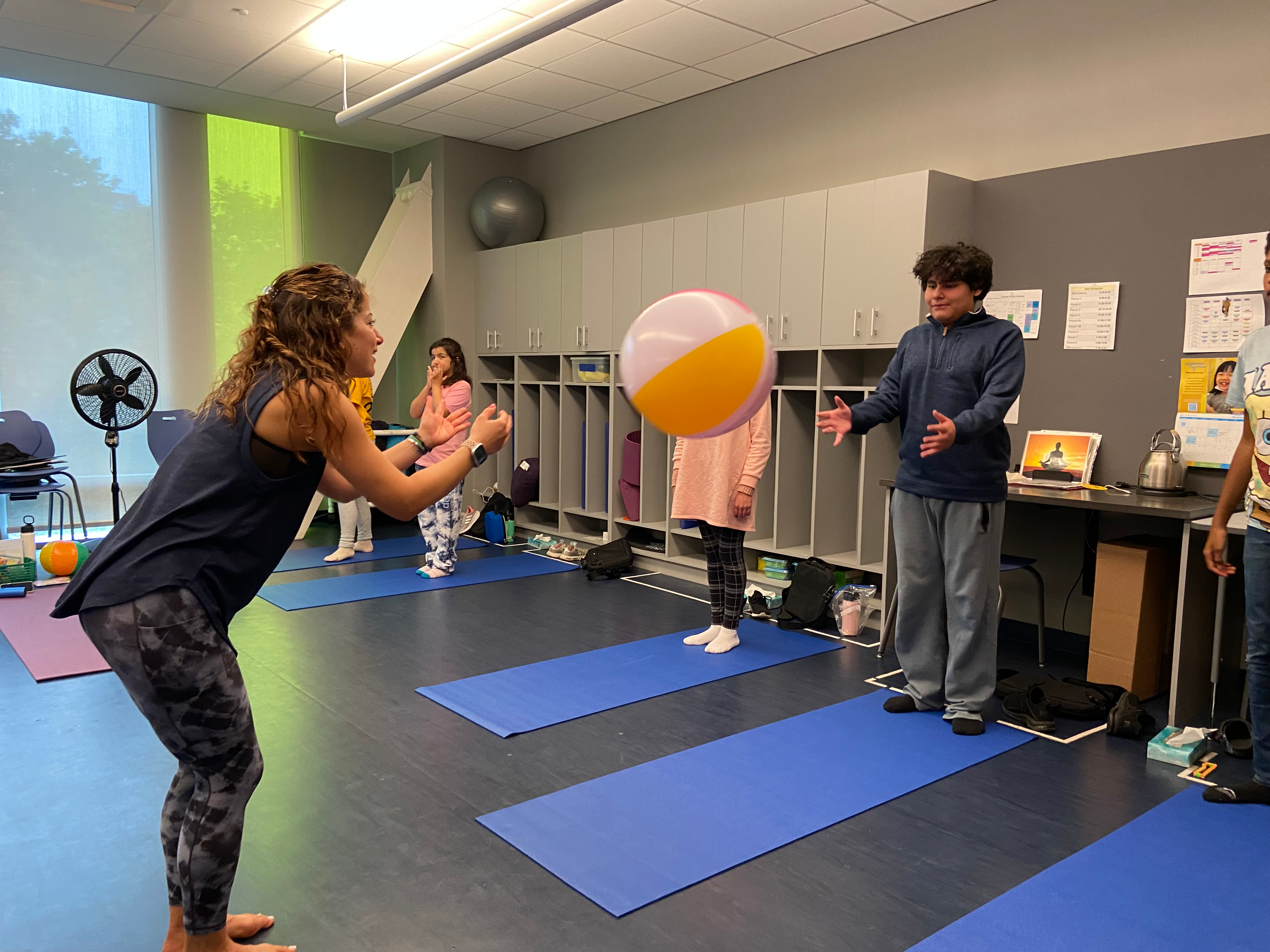
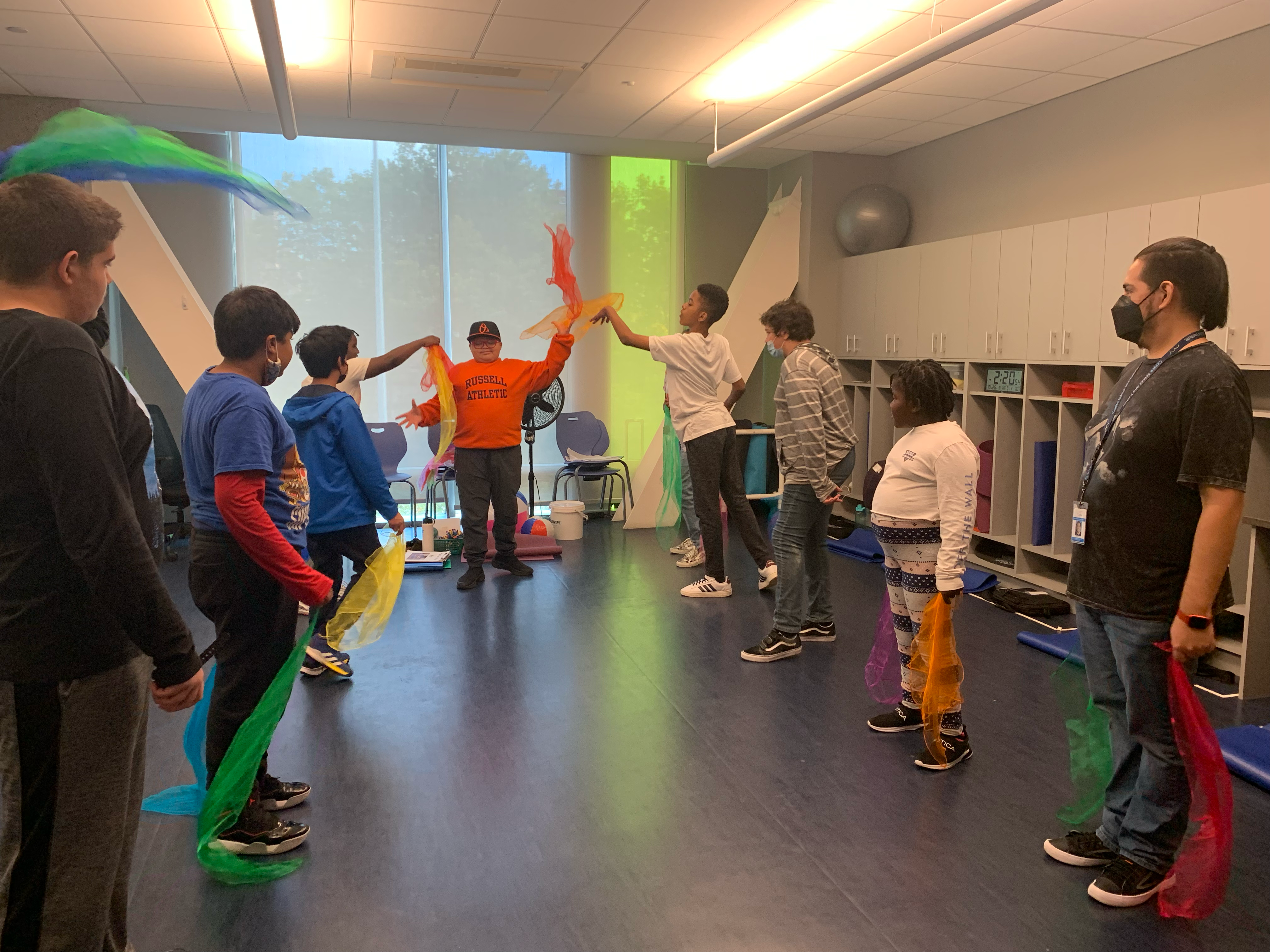
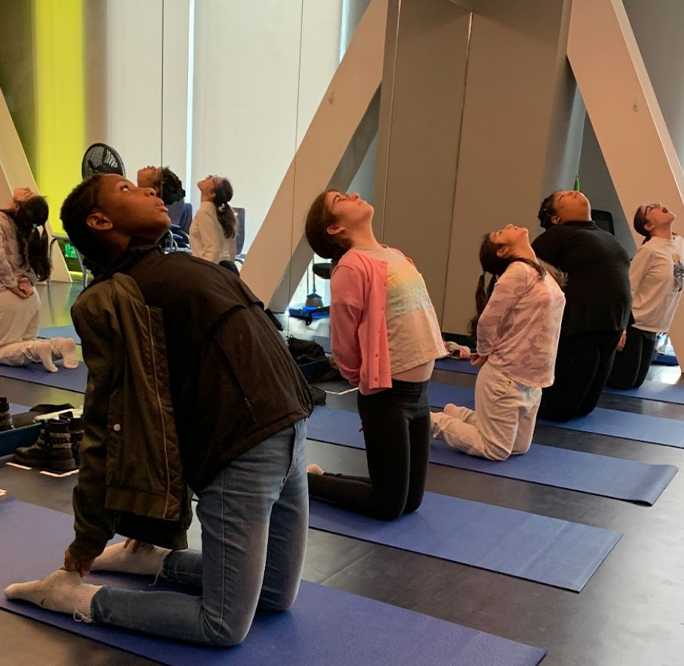
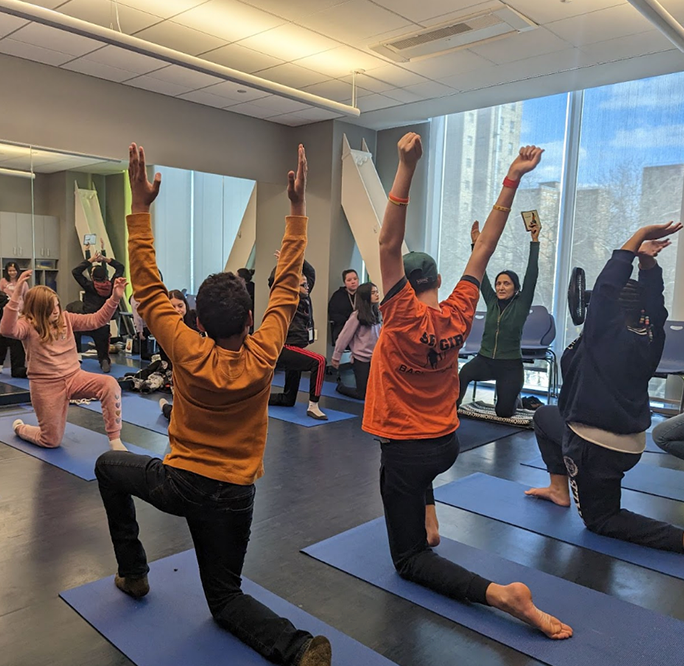
Recycle, Upcycle, Redesign: Fashion Week at Cooke Transitions
All eyes were on Transitions the week of March 13-17, for their interpretations of Fashion Week! Students and staff expressed their creativity and personal styles by coordinating outfits to match the theme of each day, which were: Color Day, Sports Day, Dress-up Day and of course Comfy Day!
The week ended with Accessory Day where everyone was encouraged to wear their favorite pieces—be it dazzling earrings or just their dazzling smile!
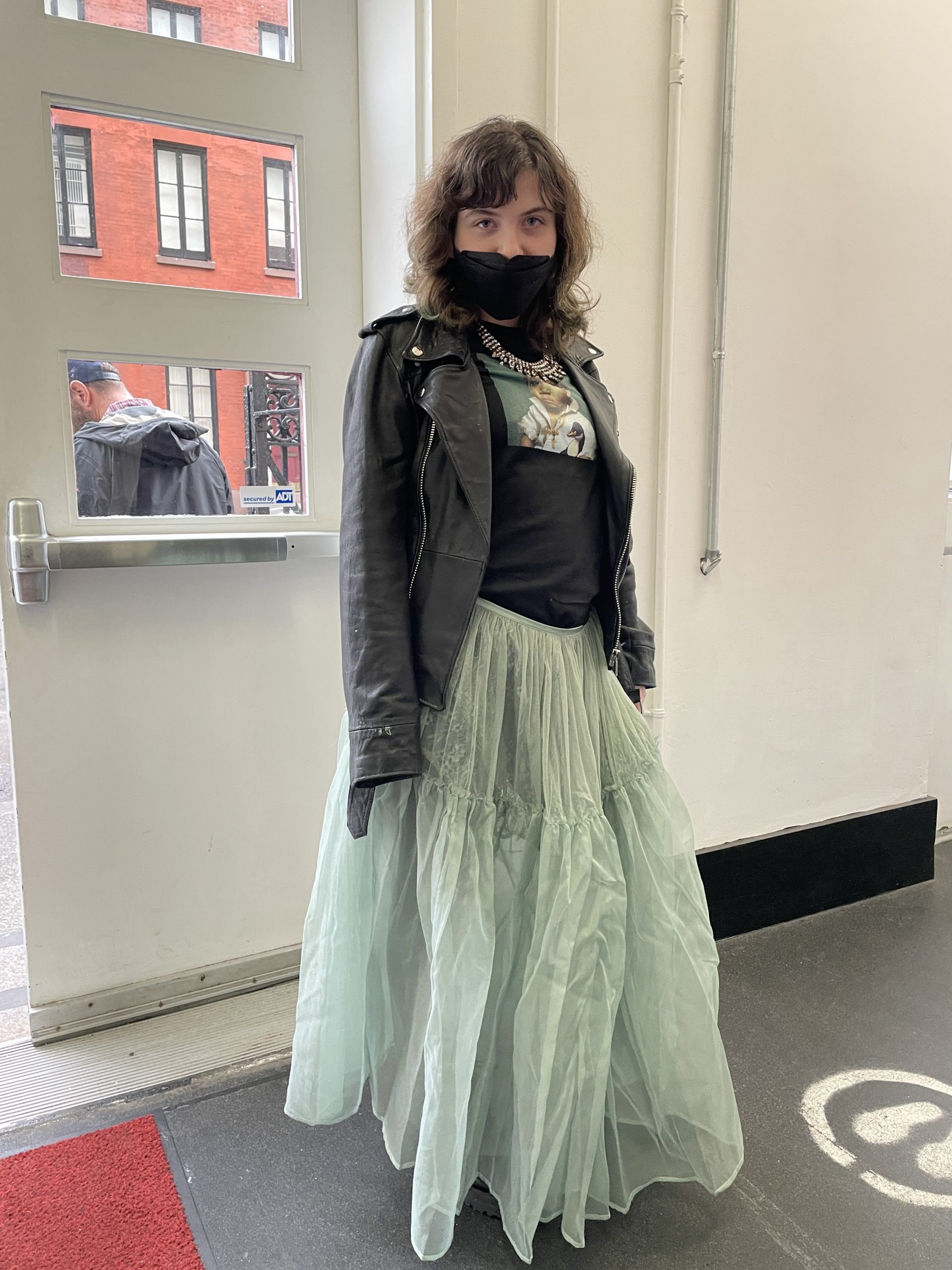
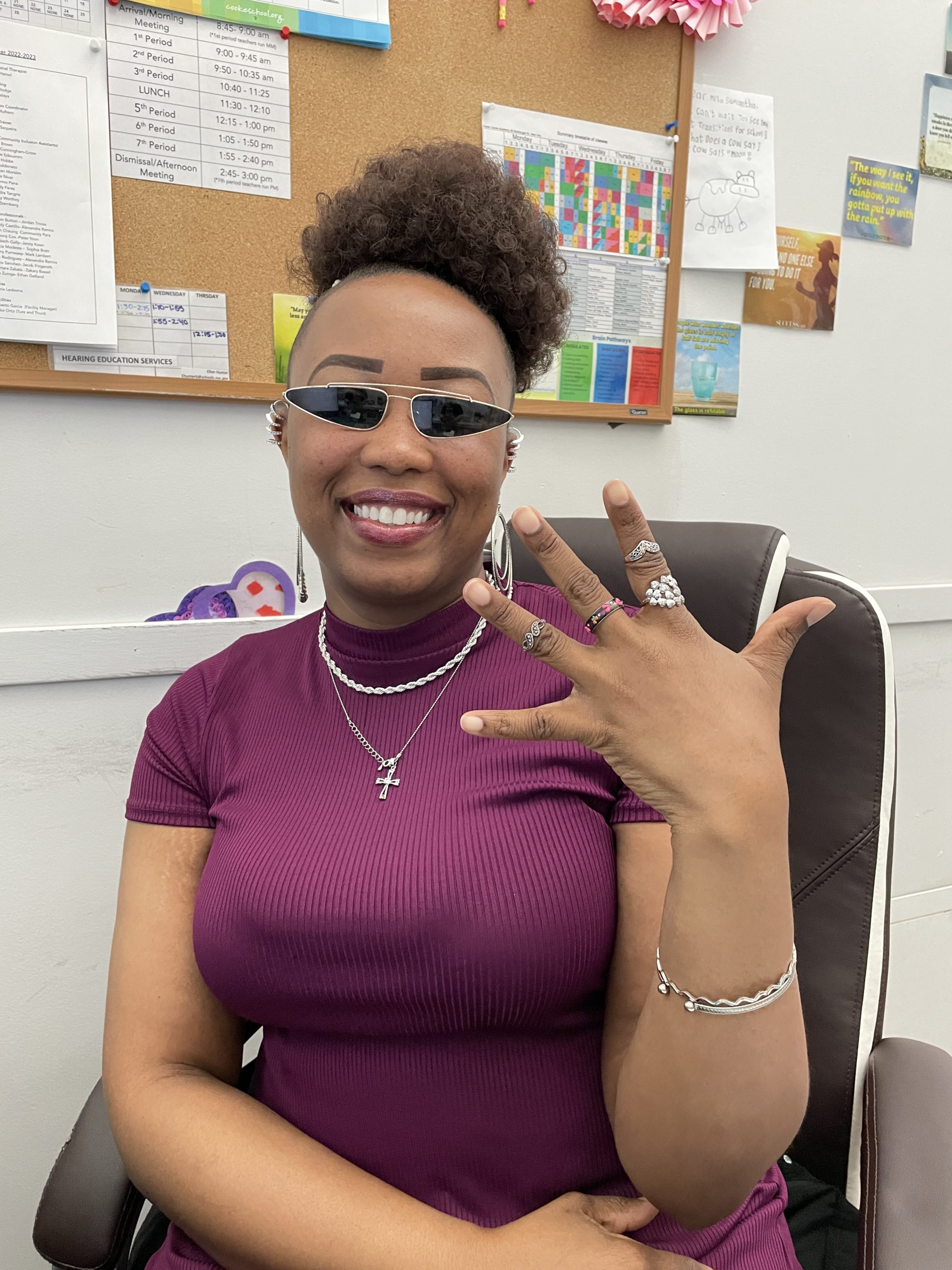
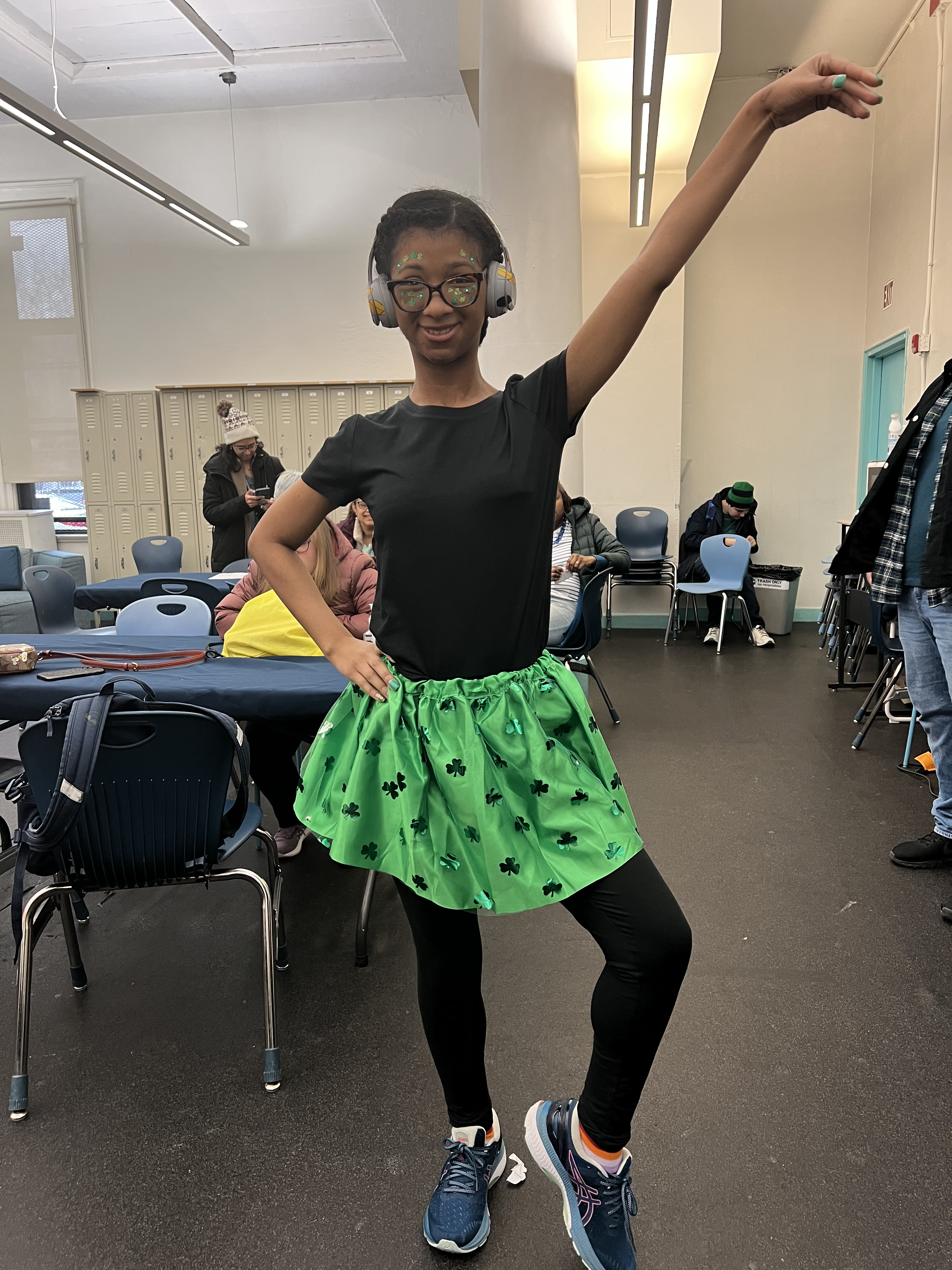
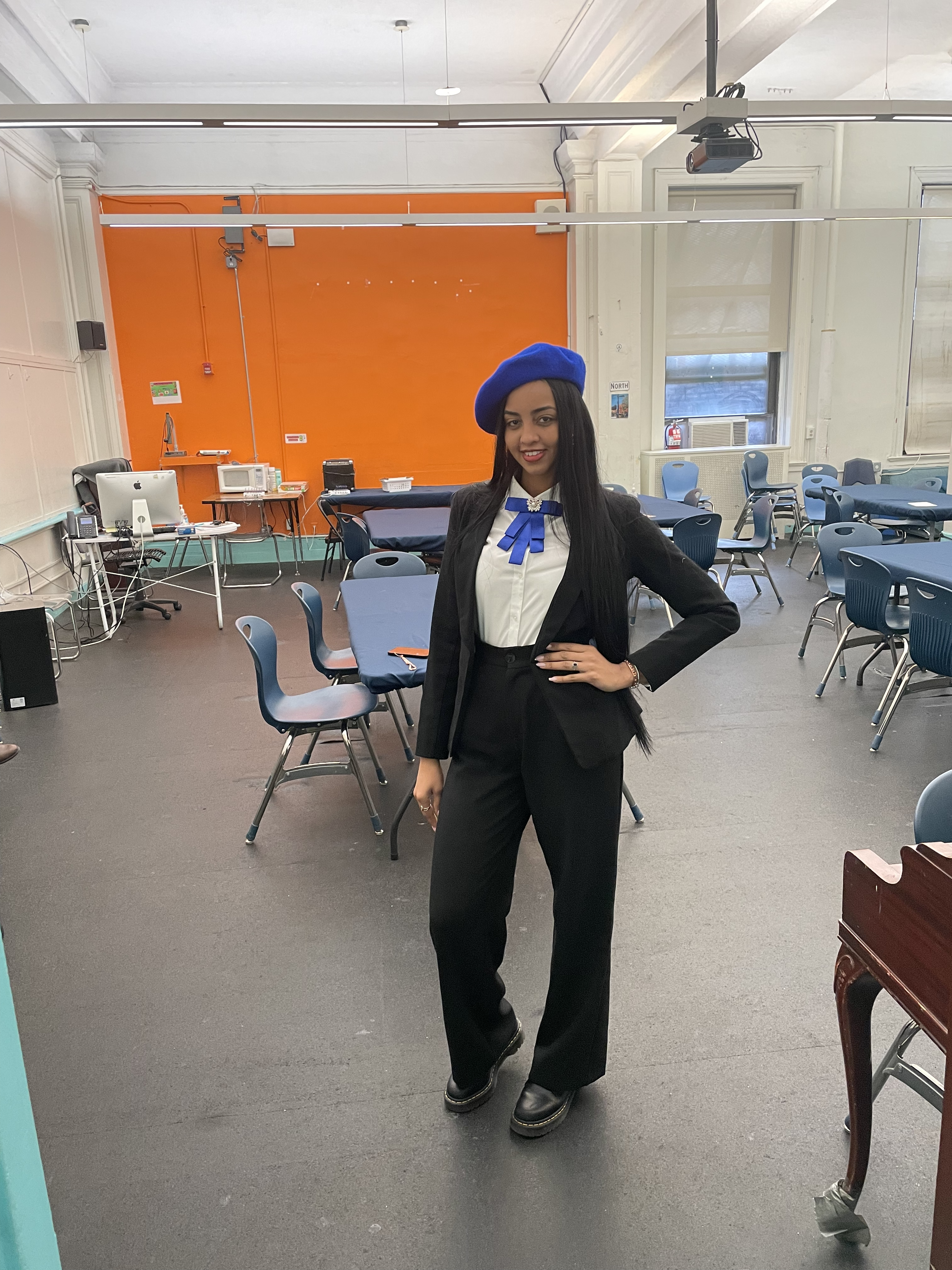
The main idea of Transition’s Fashion Week was to encourage everyone to incorporate clothing and accessories that were already in their closets or available for loan from family or friends. Students learned sewing techniques, including the running stitch, which enabled them to repurpose old or unwanted clothes/materials and transform them to suit their own unique styles.
This was a true lesson in how to DIY, all while actively practicing the concepts of recycling, upcycling and redesigning to give items new life. Students will continue to delve into the fashion world, to learn how designers are moving toward sustainable fashion and to understand how this practice is beneficial to our world.

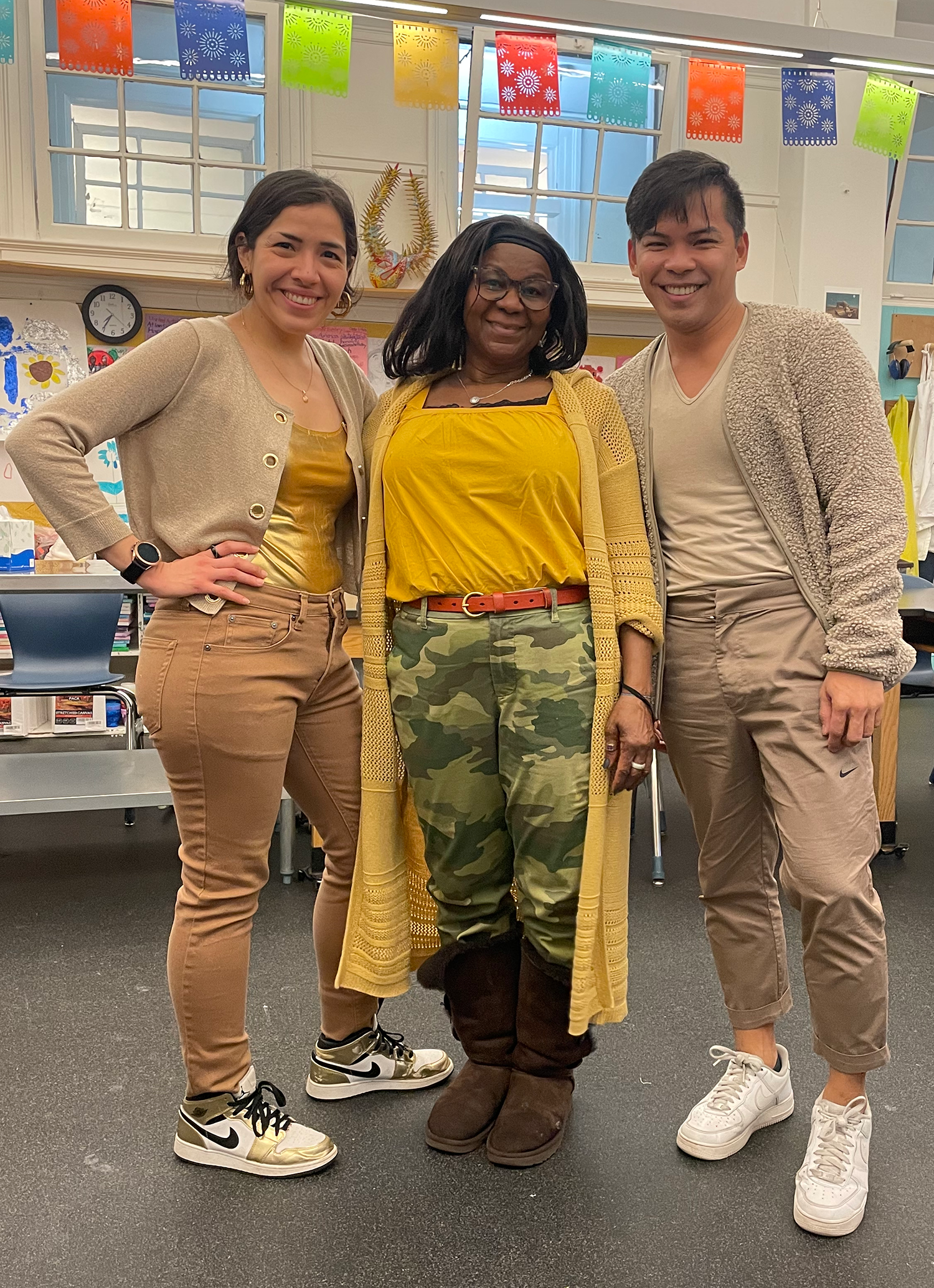
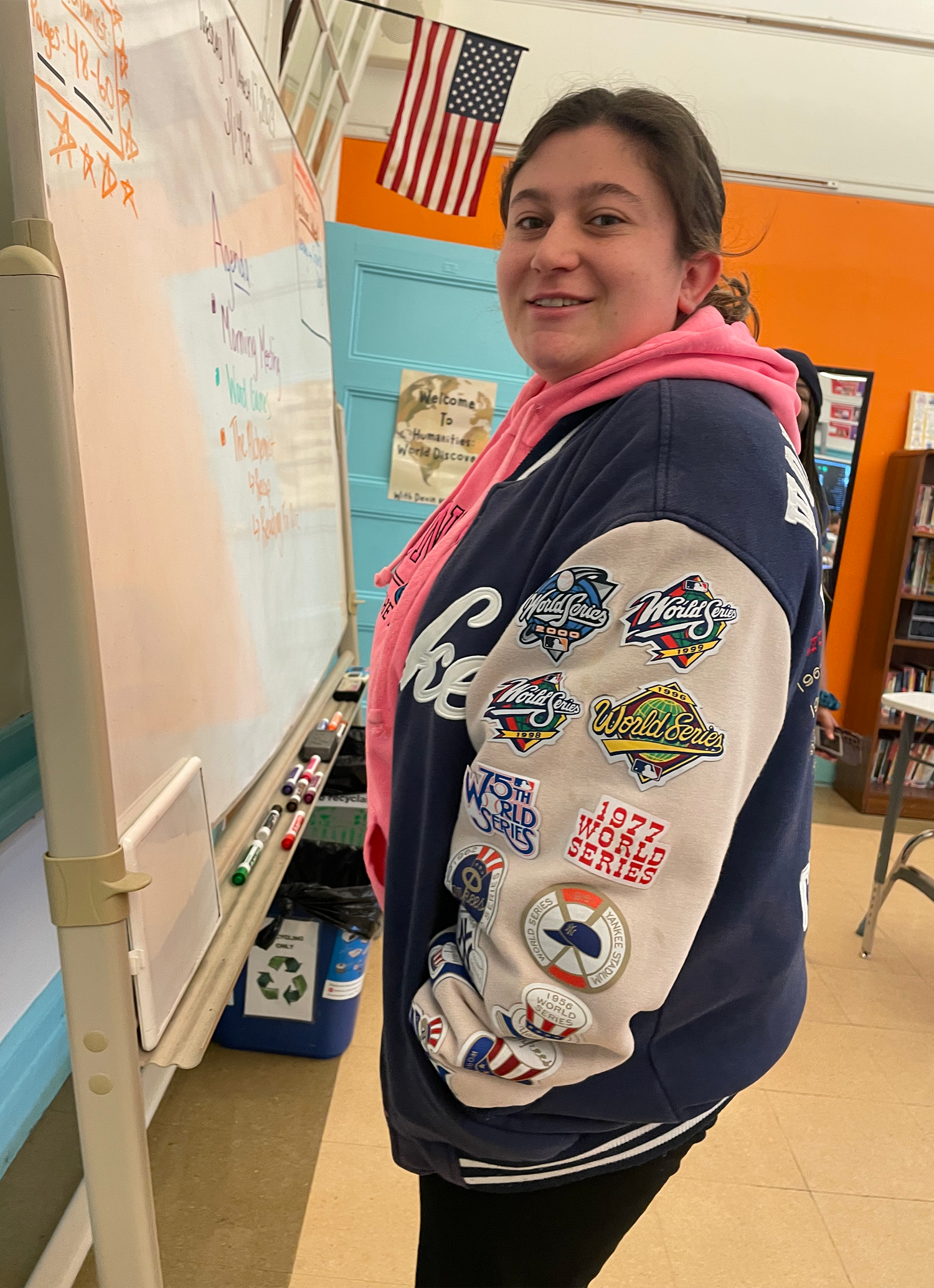
Cooke Celebrates Women’s History Month
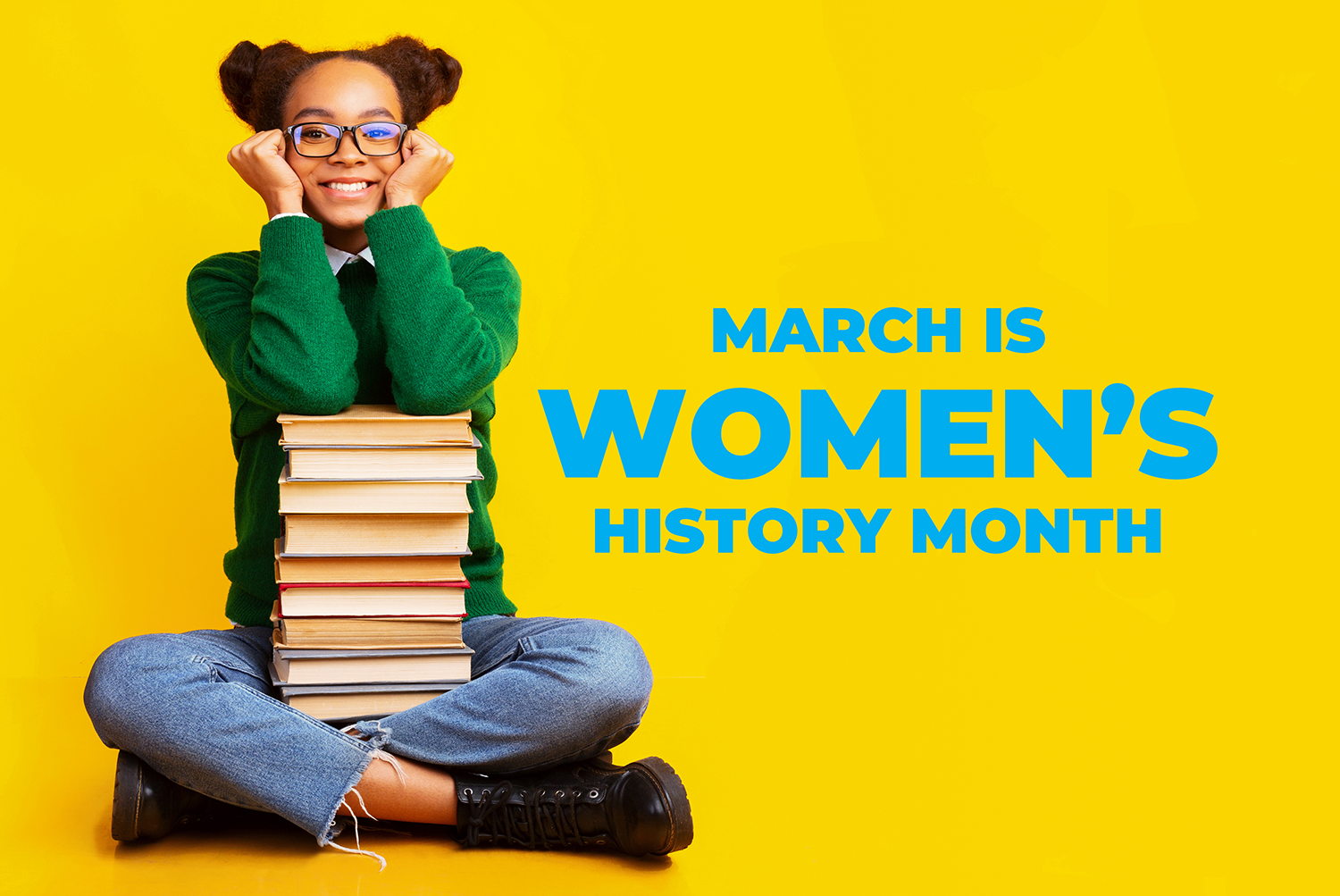
As we celebrate Women’s History Month, we acknowledge women who have impacted numerous lives—whether in the public eye or behind the scenes. Students learn about women from diverse backgrounds who have worked for social change, spoken up to make a difference and refused to be silenced in the face of adversity.
Individual stories of female accomplishment are necessary and inspiring, and at Cooke we recognize that regardless of their gender, it is imperative that our students learn about women taking collective action for change. There are numerous stories of breakthroughs and triumphs of persistent women in history, and through their stories, students gain a deeper understanding of the issues of social and gender justice.
Though women have advanced to the forefront of their fields ( Architect Maya Lin, astronaut Mae Jemison, inventor Margaret Knight, naturalist Jane Goodall, poet Gabriela Mistral, preacher Sojourner Truth, photojournalist Dorothea Lange, author Audre Lorde, jurist Ruth Bader Ginsburg, the list goes on), there are still many untold stories!
Check out our Women’s History month virtual library to view some of the titles that our students have been exploring:

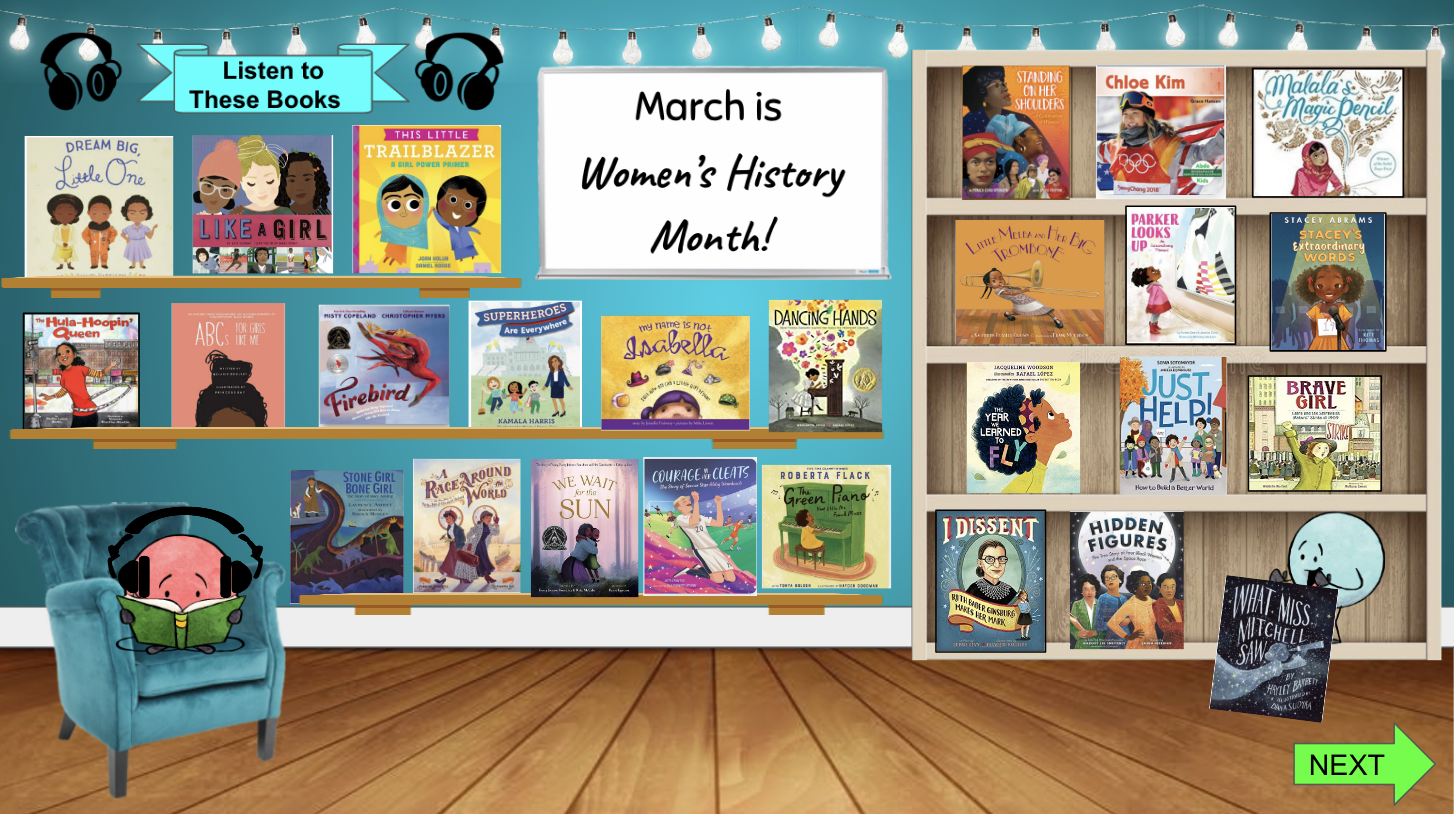
WHO: Honoring KAREN ROBARDS – Co-Founder, Alumni Parent, Chair Emeritus
WHAT: A Grand Chefs Tasting: NYC Chefs partnered with Cooke student sous-chefs
WHEN: May 24, 2023
WHERE: Lighthouse at Chelsea Piers
WHY: Support the expansion of Cooke Transitions (18 to 21-year-olds) and Alumni programming
Evening highlights include:
- A sumptuous strolling supper (featuring an extensive tasting menu), paired with a top shelf open bar
- Tastings presented by New York’s most renowned chefs, with Cooke student sous chefs
- A brief update about Cooke’s programs, followed by a lively donation/paddle raise segment
- All (ages 21+) are welcome to attend
This year’s gala will benefit phase two of Cooke’s Building Futures campaign—the expansion of our Transitions and Alumni programming for our young adult students. Cooke is committed to serving students from Kindergarten through adulthood. Our need for renovation (at 60 MacDougal Street in SoHo, NYC) and the expansion of our adult programming is directly aligned with our mission to ensure our students remain actively involved in their community, leading independent, purposeful lives.
We hope you will join us for this joyous evening! Please visit our website for more information. We look forward to seeing you there.



